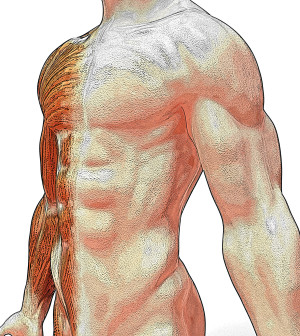- Could Your Grocery Store Meat Be Causing Recurring UTIs?
- Are You Making This Expensive Thermostat Error This Winter?
- Recognizing the Signs of Hypothyroidism
- 10 Strategies to Overcome Insomnia
- Could Artificial Sweeteners Be Aging the Brain Faster?
- Techniques for Soothing Your Nervous System
- Does the Water in Your House Smell Funny? Here’s Why
- Can a Daily Dose of Apple Cider Vinegar Actually Aid Weight Loss?
- 6 Health Beverages That Can Actually Spike Your Blood Sugar
- Treatment Options for Social Anxiety Disorder
Peers Best at Convincing High-Risk Individuals to Get HIV Test: Study


The best way to get people at high risk for HIV tested for the AIDS-causing virus is to have other high-risk people do the convincing, a new study suggests.
This approach worked especially when the people doing the urging were paid for each high-risk person they successfully referred for testing, researchers reported.
People who were contacted through this approach were 2.5 times more likely to be HIV-positive than those contacted through traditional counseling and referral programs.
“A limitation of the traditional approach is that many people who are at high risk of HIV never take the initiative to get tested on their own,” wrote study author Dr. Ryan Westergaard, an assistant professor of medicine at the University of Wisconsin School of Medicine and Public Health, in Madison.
This lack of testing leads to higher numbers of people with HIV, the virus that causes AIDS, and more transmission of the virus. An estimated 20 percent of HIV people don’t know they’re infected, the researchers noted.
The study found that using an approach that relies on people at high risk to encourage their peers to get tested “results in a higher proportion of positive HIV tests, making our efforts more effective and allowing us to reach the people who need it most,” Westergaard said. The program is being used more frequently in large cities, and people in high-risk groups are often paid money (usually $10 to $20) for each person they successfully refer to get tested.
The study is to be presented Friday during IDWeek 2014, a meeting in Philadelphia of the Infectious Diseases Society of America, Society for Healthcare Epidemiology of America, HIV Medicine Association and Pediatric Infectious Diseases Society.
More information
For more about HIV testing, try the U.S. National Institutes of Health.
Source: HealthDay
Copyright © 2026 HealthDay. All rights reserved.










